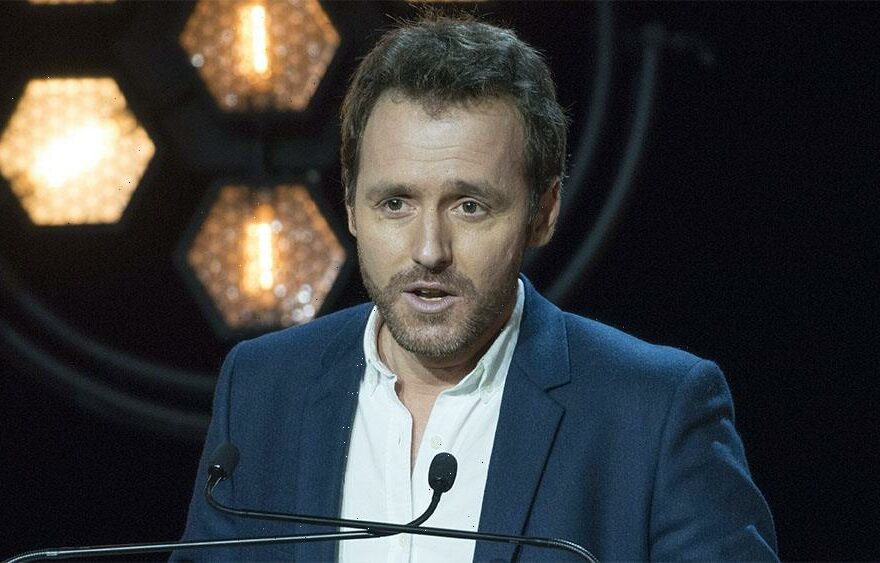Thousands of staffers and freelancers working for France’s public broadcasting groups, spanning France Televisions, France 24, Arte and Radio France, went on strike on Tuesday in Paris to protest against the government’s proposed bill to eliminate a TV license fee that finances nearly 85% of their annual budgets.
It’s considered to be French broadcasters’ biggest strike in the last 30 years, according to a source at France Televisions. Flagship programs such as morning news show “Telematin” didn’t air a new episode on Tuesday for the first time in three decades, along with “Complement d’Enquête” and a flurry of others.
The demonstration was held in front of the National Assembly, where the proposed bill to phase out the TV license fee will be presented before the council of ministers on July 6. This planned bill is part of newly reelected President Emmanuel Macron’s measures aimed at “increasing the buying power of French households.” Macron’s government previously scrapped the housing tax as part of the same plan.
The license fee, which was created 70 years ago to help fund French public radio and TV channels, applies to each household owning a TV set and currently cost €138 per year. It brings approximately €3.7 billion per year and finances most of the services of Radio France amd France Televisions (comprising of five national channels and many more regional ones), as well as their programming slates, commissioned content and workforce comprising of about 110,000 people. Under the scheme being discussed by the government, the broadcasters’ annual budgets would come from the state coffers.
Strikers, many of whom were journalists, argued that having broadcasters’ financing provided by the state budget rather than a TV license fee will weaken their editorial independence, and put them at the mercy of the government.
“This proposed bill represents a threat for our independence and will give the government a lot of leverage over us, because it means we will have to renegotiate this budget each year, or every two years,” said Tristan Waleckx, a well-respected journalist and TV reporter working for “Complement d’Enquête,” a weekly TV magazine known for its thorough investigations on political figures.
Waleckx said France Televisions is the only TV group in France that isn’t owned by billionaires or industrials, unlike TF1 and M6 (whose proposed merger is currently being examined by the anti-trust authorities).
“I worked at TF1 before, for five years, and we could still do investigations, but we felt pressures from advertisers or partners, which I haven’t felt at ‘Complement d’Enquête,’ where we can investigate anything and anyone,” said Waleckx. “If we start being dependent on the government, it may impact the quality of our news coverage and create some fears because people will think we can’t bite the hand that feeds us.”
He said the government should look at what is being done in other countries, such as Norway, where the TV license fee has been replaced by a tax levied on people’s income, which means it’s a percentage calculated on revenues, rather than a flat fee applying to everyone.
Journalists participating in the strike also worried that their outlets’ budgets could be hit at any time, if there’s a national crisis, or if a far-right president is elected and doesn’t believe in the virtue of free speech.
“Today, we have a centrist President Macron who already thinks ‘France’s public broadcaster is the shame of the Republic’ (alluding to a comment made by Macron in 2017), but what if tomorrow we had someone like Marine Le Pen as our president? We don’t want to be at the mercy of governments in the future, we need to be fully independent from political powers,” said Noemie Marot, a freelance journalist working for France 3, a France Televisions channel. Being dependent on the state budget represents another risk because saving the media’s resources may not be considered as crucial as giving more means to hospitals or schools, continued Marot.
Stephanie Desjars, a well-known reporter working for France Televisions, suggested Macron’s proposed bill also represented a credibility threat.
“There’s already a lot of skepticism toward journalists, a lot of people perceive us as selloffs, so if we’re financed by the government, it will be viewed as a proof of our dependence; and claiming that the scrapping of the TV license fee will help increase the buying power of French households also sends a very bad signal,” continued Desjars, who added that news gathering and journalistic work necessitate a certain amount of time and resources to be done properly.
The strike and demonstration were orchestrated by several labor unions, including the CGT. Pierre Mouchel, the delegate of France Televisions’ union at the CGT, said the timing was crucial to protest and gather the support of deputies from other political parties.
“En Marche no longer has a majority of deputies within the National Assembly, so Macron now has to work with deputies from La France Insoumise as well as the Nupes, which gathers Socialists and ecologists who understand our concerns,” said Mouchel. If the bill fails to gain the approval of deputies, the TV license fee will remain in place, and could be replaced down the line by another measure similar to what is being done in the Nordics, per Mouchel.
Source: Read Full Article
